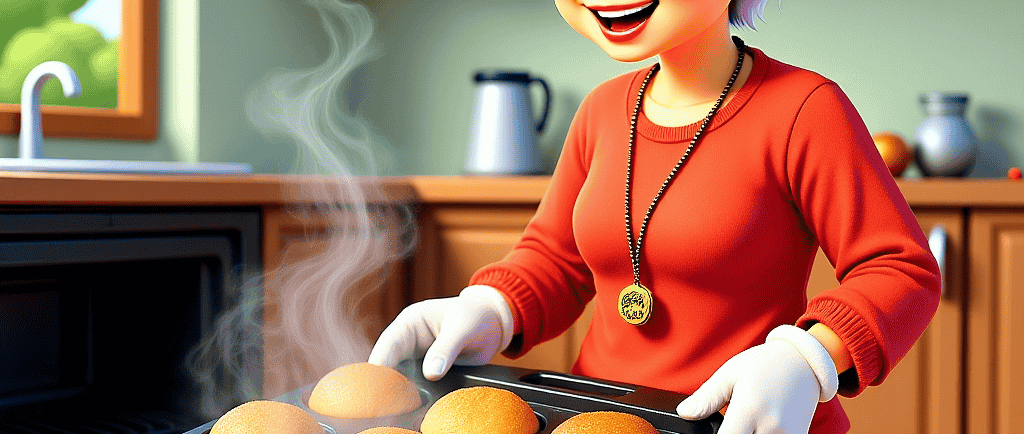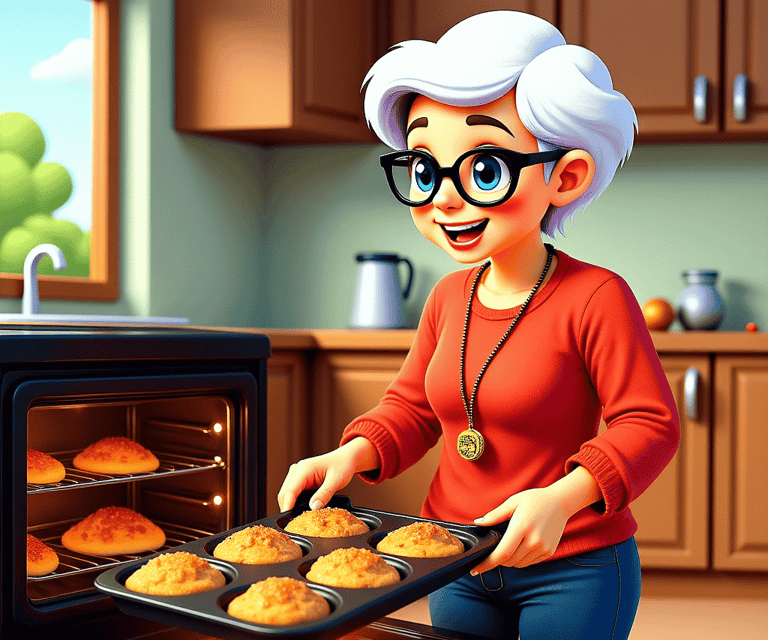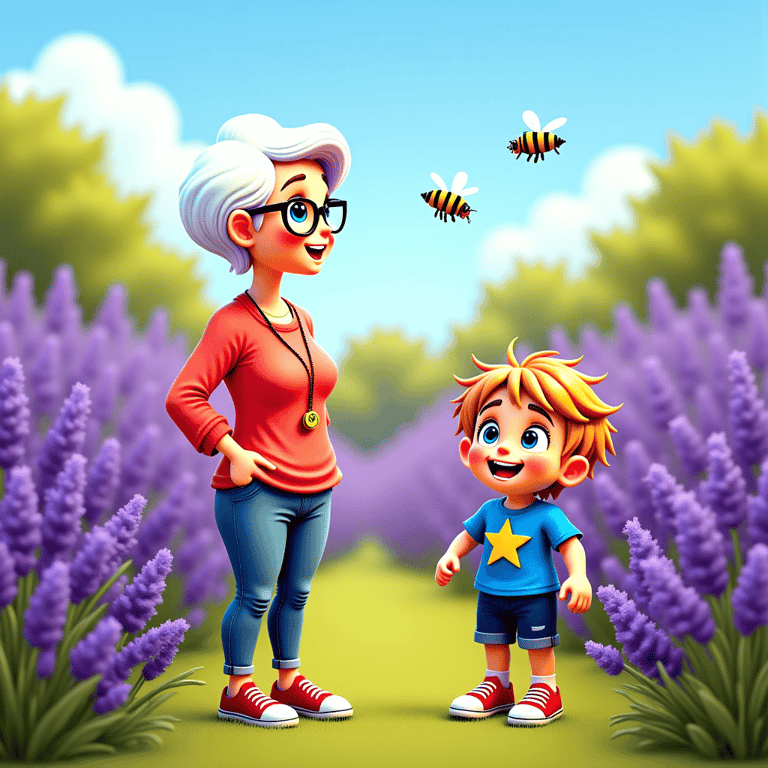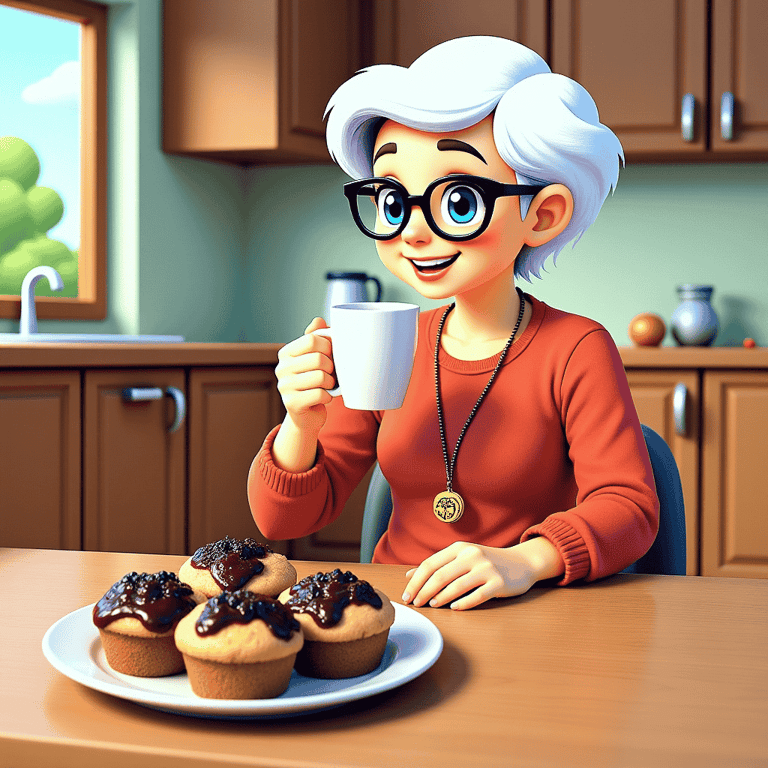The Buzz from Nanny’s Kitchen: How Little Creatures Keep Our World Alive
In this heartfelt reflection by Alvey Starr, discover how bees, butterflies, and other tiny pollinators connect Nanny’s kitchen to the wider natural world, reminding us that caring for little creatures means caring for life itself.
Alvey Starr
10/20/20254 min read


If you ever wander past Nanny’s kitchen window on a warm afternoon, you’ll likely see her standing by the sink, hands dusted with flour, humming softly as sunlight spills across her counter. The air hums too, but not with electricity or machines, but with the gentle drone of bees outside the open window.
Nanny says she likes to “cook with the window open so the bees can smell what’s for tea.” It’s her way of sharing, she explains it’s a small thank you to the little creatures that make her garden, and the world beyond, so beautifully alive.
A Kitchen That Feeds More Than People
For as long as I can remember, Nanny’s kitchen has been the heart of her home. It’s a warm, bustling place where jam jars clink, fruit bowls overflow, and the air is rich with the scent of something baking. But what many people don’t realize is that everything that passes through that kitchen, like the honey, the fruit, the vegetables, the bread, owes something to the tiniest workers on Earth.
Take the strawberries she uses for her famous jam.
The Hidden Heroes in the Garden
When I was a child, I thought bees were only good for honey and stings. Nanny quickly put me right.
“They’re more than that, love,” she told me one summer afternoon as we watched them drift between her lavender bushes. “They’re gardeners in disguise. Every blossom they visit, every trip they make, they’re stitching the world together.”
It’s true. Bees, bumblebees, butterflies, and countless other insects are essential to nearly everything we eat. More than 75% of the world’s flowering plants and around 35% of global food crops depend on animal pollinators.
Nanny's Secret Ingredient: Respect for the Small Things
Nanny’s kitchen isn’t just about food, but about respect. Respect for time, for people, and for the planet.
She never throws away bread crusts (the birds might like them). She saves rainwater to fill the birdbath. And when the bees swarm too close to the door, she simply smiles and says, “They’re only curious.”
In her quiet, practical way, Nanny has taught me that caring for little creatures isn’t just kindness.
It’s survival.
Her garden thrives because it’s alive, a living network of plants, insects, and soil all working together.
That philosophy carries into her cooking. Her food tastes of the earth, the sky, and the patient work of the tiniest life forms. She always says, “If you care for the small things, the big things take care of themselves.”
A World in Need of Buzzing
But not all kitchens are as lucky as Nanny’s. Around the world, bee populations are in trouble. Pesticides, pollution, habitat loss, and climate change have pushed many pollinators to the brink.
In the UK alone, one-third of wild bee and hoverfly species are declining. Globally, the situation is similar. And that’s a problem not just for bees, but for us. Without pollinators, our food systems could falter. Our gardens could fade. Our ecosystems could unravel.
But there is hope, and it starts right where Nanny would tell us to begin: at home.
Small Acts That Matter
You don’t need a big garden to make a difference. You don’t even need to keep bees (though Nanny says she wouldn’t mind a hive or two). All it takes is a little awareness, and a few simple acts of care.
Here are a few ways Nanny and I have learned to help our buzzing friends:
Plant for Pollinators: Lavender, marigolds, foxgloves, and wildflowers are bee favourites. The more variety, the better.
Skip the Sprays: Avoid pesticides and herbicides. Nature’s balance works best without chemicals.
Provide Water: A shallow dish with pebbles gives bees and butterflies a place to rest and drink.
Leave a Wild Corner: Let the grass grow. Leave fallen leaves and old wood for nesting and shelter.
Buy Local Honey: Support small-scale beekeepers who protect pollinator populations.
Each act might seem small, but together they create the kind of world where both bees and humans can thrive, a world that buzzes with life and flavor.
The Taste of Gratitude
Sometimes, when the afternoon sun stretches long and golden, Nanny sits at her kitchen table with a slice of honey cake and a cup of tea. She’ll say, “It’s the bees, you know. They make everything sweeter.”
And I believe her. Because when you taste honey made from flowers grown in your own garden, it’s not just sugar you taste, but it’s the connection. It’s gratitude. It’s the miracle of small things doing great work.
As I’ve grown older, I’ve realized that Nanny’s kitchen isn’t just a place for baking and boiling. It’s a place of balance. It’s a living reminder that the tiniest creatures can have the biggest impact.


Without bees, butterflies, and even the humble hoverfly, there’d be no strawberries. These little pollinators move from flower to flower, carrying life on their tiny legs. Every spoonful of Nanny’s jam, every bite of her apple pie, begins not in the kitchen, but in the garden with a buzz, a flutter, and a dance of wings.


Without them, our plates, and Nanny’s kitchen, would look heartbreakingly empty.
No apples. No cucumbers. No tomatoes. No almonds. No honey.
Yet these creatures ask for so little in return. A patch of wildflowers. A safe place to nest. A garden left just a little untidy, so they can find what they need.


Bees, butterflies, beetles, worms… they all have their part to play. They remind us that we’re part of something vast and interwoven, and that even our smallest choices ripple outward.
So next time you drizzle honey on your toast, or bite into a crisp apple, think of the wings that made it possible. Think of the quiet, determined lives in your garden. And maybe — just maybe, open your kitchen window a little wider.
Who knows? A bee might just stop by to thank you.
Inspire
Books that nurture kindness and self-growth.
Educate
Entertain
+1234567890
© 2025. All rights reserved.
